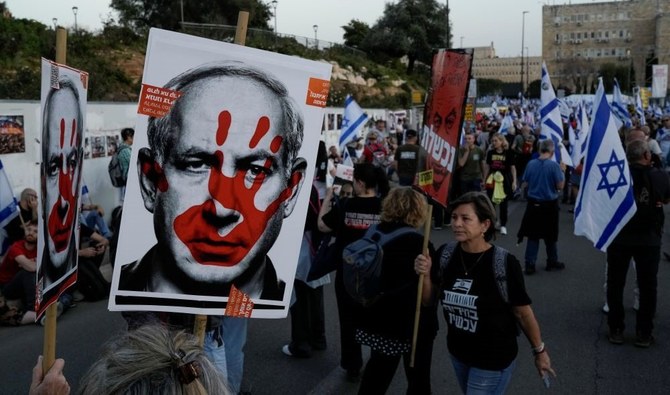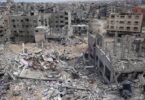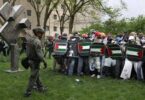Ghassan Charbel
He lies down to sleep. He is exhausted. This is the toughest war Israel has ever fought. Fighting armies was easier than this. Its headlines would have been known and these armies would eventually be broken. Strike their airports and headquarters and burn their tanks. They can be forced to swallow the bitter pill and stop the fighting without reclaiming their land. The deterrence power was perfect.
This war is unlike all the others. Before going to bed, he goes over reports. The Al-Shifa compound refuses to die. The army claims to have brought it to heel, but it still resists. Many battles need to be fought before the battle of Rafah.
He goes through the numbers. Hundreds of officers and soldiers have been killed, while thousands have been wounded and crippled. The economic losses are terrible, but this is an existential war. Where is Israel’s might? Where is its long arm that stretched to Entebbe in Uganda, carried out assassinations in Tunisia, struck reactors in Iraq and killed in Tehran, Damascus and Beirut?
The story is about more than just the hostages held in Hamas’ tunnels. They number no more than a sixth of the army’s casualties. Their return is necessary, but not enough to compensate for and justify the losses. Moreover, stopping the war once they return will be a bitter pill to swallow. Stopping the war is terrible and painful. It simply means the formation of investigations committees. It would mark the end of a horrifying chapter in rule. It is a dreadful end for a man called the “King of Israel.”
He will not swallow the pill to please Joe Biden and his electoral chances. He knows America. How hard it is to be its enemy and to be its ally. The leaders of Europe are cowards who fear human rights organizations and social media. The “free world” is no longer free.
Since the beginning of the Al-Aqsa Flood operation, he has asked the same question to the Mossad and Shabak officials and every day he is left disappointed. They do not know that a war as horrific as this cannot end with the simple return of the hostages and the humiliating price of releasing them. This is a major war that can only end with a hefty corpse: that of the mastermind of the flood. He is haunted every night by the corpse of Yahya Sinwar.
The world of assassinations is rich and diverse. It is an industry that can adjust to the changes of the age. In the age of artificial intelligence, the dagger has become outdated. A whole people can be assassinated by stealing their land and expelling them from it. By planting it with settlements and settlers. By using the weapons of displacement, hunger and thirst.
Making a Nakba is an art that demands cruelty, perseverance and allies. Enemies, their voices, breaths and fingerprints, can be tracked down. The age has moved on from daggers and bullets to drones. Ultimately, the journey must end with a corpse floating on the river of the long conflict.
There is no room for two people. A corpse is necessary. A tree cannot survive with another right next to it that is fighting for room for its roots. In conflicts, it is either kill or be killed. The corpse of your enemy is the ultimate prize. It will reassure, comfort and save you. It is a medal of honor and a shining point on your resume and in your history. He did not invent assassinations. It is an art that has been alive in Israel for five decades. In September 1972, the Black September group dealt a deadly blow. Its gunmen stormed the Israeli apartments at the Munich Olympic Games and held several athletes hostage, demanding the release of prisoners detained by Israel. The end was bloody. Eleven Israeli athletes were killed.
Israel was dealt a massive shock. The security forces informed Prime Minister Golda Meir of a plan. After some hesitation, she approved Operation Wrath of God, which called for the assassination of everyone involved in the Munich attack. Thus, the world witnessed a long series of assassinations, whose arenas included Beirut and several European capitals. That period consolidated one rule: the corpses of Israel’s greatest enemies always carried the signature of the prime minister.
There is not enough space here to list all the assassinations and signatures, but some examples will suffice. The corpses of Kamal Adwan, Abu Youssef Al-Najjar and Kamal Nasser in Beirut carried the signature of Meir and the assassinations were led by an officer called Ehud Barak. The corpse of Khalil Al-Wazir, aka Abu Jihad, one of the founders of Fatah, carried the signature of Yitzhak Shamir.
Later, Barak, as the Israeli army’s chief of staff, would order the assassination of Hezbollah Secretary-General Abbas Al-Musawi, whose corpse would also carry Shamir’s signature. The corpse of Fathi Shaqaqi, founder and Secretary-General of Palestinian Islamic Jihad, would carry Yitzhak Rabin’s signature. The corpses of Ahmed Yassin, the founder of Hamas, his successor Abdulaziz Al-Rantisi and Al-Qassam Brigades general Salah Shehade would carry the signature of Ariel Sharon. The corpse of Imad Mughniyeh, a prominent Hezbollah member, would carry the signature of Ehud Olmert, who also signed off on the corpses of two Iranian nuclear scientists. The corpse of Yahya Ayyash, Hamas’ chief bombmaker, would carry the signature of Shimon Peres.
Benjamin Netanyahu is in no need of corpses and signatures. From Mahmoud Al-Mabhouh and Ahmed Jabari to Saleh Al-Arouri and Marwan Issa. Israel’s longest-serving prime minister now has the deadly need for a hefty corpse. Netanyahu has old scores to settle with Hamas, even though he has banked on making gains from the division between the Palestinians. When he was PM in 1997, a proposal was made to him to assassinate Hamas leader Khaled Meshal in Amman. It was a difficult decision. Israel and Jordan have a peace treaty. The Mossad ruled out the use of bombs and bullets, but instead opted for poison.
One of the perpetrators managed to poison Meshal, but he was caught by the security forces. King Hussein deemed the operation an insult and threatened to review the peace treaty. Washington intervened and asked that Netanyahu immediately dispatch an antidote that would save Meshal, and so it was. King Hussein wanted more and insisted on the release of Yassin, who Sharon would later assassinate.
Netanyahu is now dreaming of Sinwar’s corpse. This corpse may allow him to claim “victory,” perhaps stop the war and say that Israel captured the man who launched the Al-Aqsa Flood.
He cannot apply the Chinese proverb that says a man awaiting vengeance needs only to sit on the bank of the river and wait: his enemy’s corpse will soon float by. He wants the corpse now to cover his mistakes and sins. He wants to use it to cover the fragility of the state called Israel. He refuses to learn. The abundance of signatures on corpses did not bring security to Israel, which itself appears to have been born from an assassination operation.







